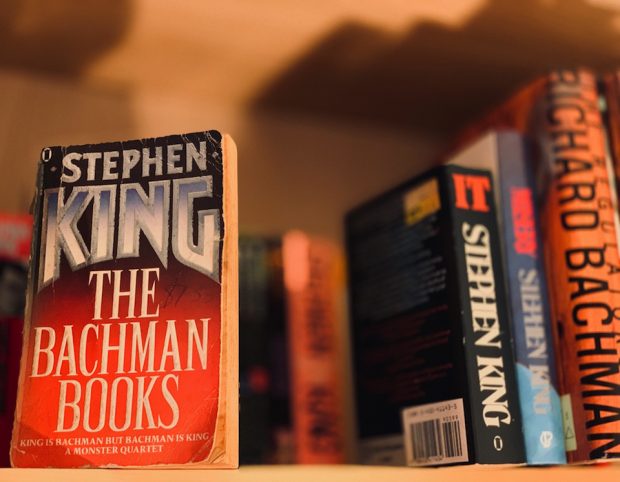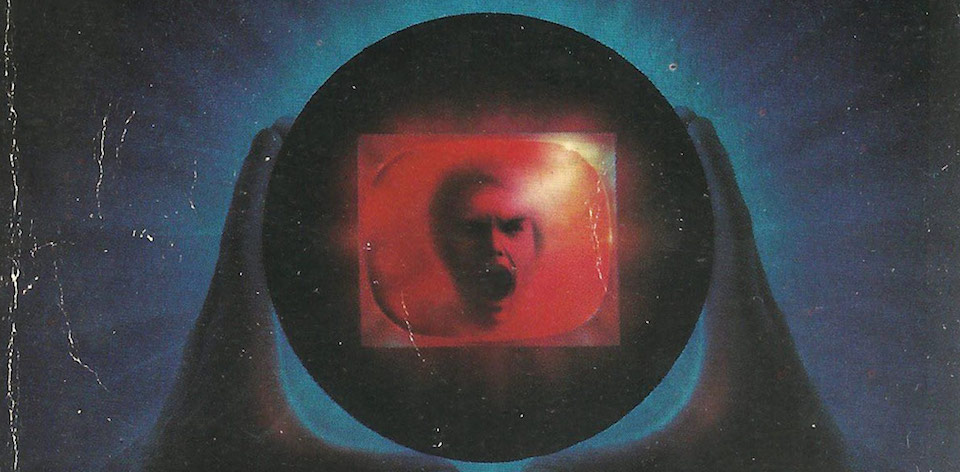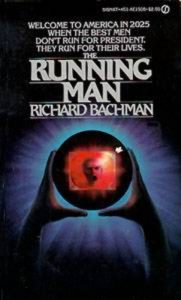Welcome to the feature column that explores a decent number of Stephen King’s books in the order they were published! (More or less!) Fair warning: there will be spoilers ahead.
A dystopian 21st century America where the only escape is through game shows? What a sci-fi concept! At least it was in 1980s America, when a former entertainer was President who enacted strict laws on immigration and was ultimately viewed by the Russians as a celebrity. You know, different times.
Writing under the Richard Bachman pseudonym, Stephen King’s THE RUNNING MAN is a work of its time, even with the dystopian backdrop. It’s 2025, and Ben Richards is unable to find work in the impoverished Co-Op City. Trying to support his wife and sick newborn, he enters the government operated television show The Running Man in an act of desperation.
The game is deadly in its simplicity. Players are declared enemies of the state, given a 12-hour head-start and hunted down by authorities. The longer they play, and the more cops they kill, the more money they get. If they make it all the way to the 30-day mark, there’s a $1 billion prize waiting for them.

A thematic twin with the previous Bachman book Roadwork, there is an angry young voice shouting at the system in the heart of THE RUNNING MAN. Combine that with the future competition vibes of The Long Walk, and you might get a sense of where at least part of King’s brain was during this era. “In short,” says one official of Richards, “you are regarded as antiauthoritarian and antisocial.” It doesn’t always make the lead the most likeable of people, although that’s never been a prerequisite for fiction.
This is also one of Bachman/King’s most deliberately paced novels to this point. Indeed, in his 2001 memoir On Writing, King reflects that THE RUNNING MAN “was written in a single week.” The rapid-fire read, achievable in one or two steady sittings, is dictated partly by the constant threats to Richards, but also the literal ticking clock of the chapter headings. The book starts with “…Minus 100 and COUNTING…” and works its way down to 000 and a depressingly explosive conclusion. If there was a more apt symbol of Bachman-era fatalism, I would struggle to think of it.
In a curious little bit of future continuity, a climactic sequence also kicks off in the large airport of a town called Derry. Four years before King would explore the streets and sewers of Derry in-depth with It (1986), it’s casually mentioned here in all its dystopian splendour. Indeed, Richards’ final goal mirrors Ed Deepneau’s plans in the Derry-set Insomnia (1994), a key link in the Dark Tower saga. It’s a stretch to connect all these dots here, but King would release the first chapter in that cycle, The Gunslinger, in the same year. So much for hiding the Bachman connection, Mr. King.

Naturally, when people think about THE RUNNING MAN, they can’t help but think of the 1987 film adaptation starring Arnold Schwarzenegger. The actor is the physical antithesis of the Ben Richards character described on page, but the movie has its own unique charms. Like The Long Walk, the novel has also inspired a real-life counterpart of sorts: the short-lived TV show The Runner used the same basic concept, except contestants were caught rather than killed. At least as far as we know.
A product of its time, including an alarming number of casual racial and homophobic slurs, it’s a classic example of the future as viewed through the lens of the 1980s. Television and big brother governments create a culture of fear, which if anything was more prophetic than even the cynical Bachman/King of his 20s and 30s could have imagined. You don’t have to look too deep to find any hidden meanings here, but you’ll enjoy a solid page turner while you’re doing it.





